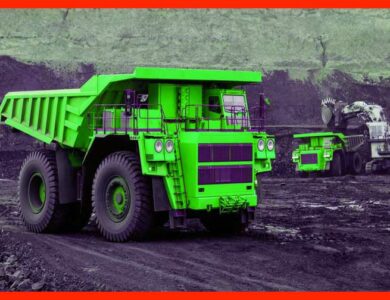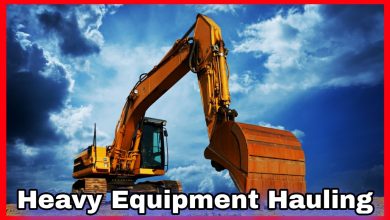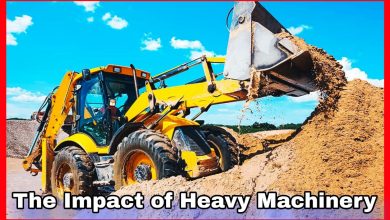
Heavy Equipment for Sale: A Comprehensive Guide to Making the Right Purchase
When it comes to heavy equipment, finding the right machinery for your business needs is crucial. Whether you’re in construction, mining, or any other industry that requires heavy machinery, making an informed purchase is essential to ensure productivity, efficiency, and cost-effectiveness. In this article, we will explore the key factors to consider when looking for heavy equipment for sale, enabling you to make the best decision for your specific requirements.
Understanding Your Business Needs
Before diving into the market for heavy equipment, it is crucial to assess your business needs thoroughly. Consider the type of projects you undertake, the scale of your operations, and the specific tasks you require the equipment for. By understanding your requirements, you can narrow down your search and focus on the machinery that will best serve your purposes.Researching Available Equipment
Once you have a clear understanding of your business needs, begin researching the available equipment options. Explore reputable equipment manufacturers, dealerships, and online marketplaces that specialize in heavy machinery. Look for equipment that aligns with your requirements, and create a shortlist of potential options.Evaluating Equipment Performance
When considering heavy equipment for sale, it is essential to evaluate its performance capabilities. Look for specifications such as engine power, load capacity, speed, and fuel efficiency. Consider how these performance factors align with your business needs and ensure they meet the demands of your projects.Considering Equipment Condition and Maintenance
The condition of the equipment is a crucial aspect to assess before making a purchase. Take into account factors such as equipment age, maintenance records, and any repairs or refurbishments that have been conducted. Opting for well-maintained equipment will minimize the risk of unexpected breakdowns and ensure its longevity.Examining Equipment Pricing
Pricing plays a significant role in the decision-making process. While it’s important to consider your budget, it’s equally important to strike a balance between cost and quality. Compare prices from different sellers, and be cautious of deals that seem too good to be true, as they may indicate underlying issues with the equipment.Exploring Financing and Leasing Options
If purchasing heavy equipment outright is not financially feasible, consider exploring financing or leasing options. Many dealerships and financial institutions offer flexible payment plans that can help you acquire the machinery you need while spreading out the costs over time.Reviewing Equipment Warranties
Warranties provide valuable protection against unexpected defects or malfunctions. When considering heavy equipment for sale, review the warranty options available. Understand the coverage, duration, and any conditions that apply. A comprehensive warranty can provide peace of mind and save you from significant repair costs down the line.Inspecting Equipment History
Before finalizing your purchase, delve into the equipment’s history. Request information about previous ownership, usage, and any incidents it may have been involved in. This information will help you gain insights into the equipment’s overall condition and potential risks associated with its past usage.Testing Equipment Functionality
It’s essential to thoroughly test the functionality of the equipment before committing to a purchase. Whenever possible, schedule an inspection or a test run to assess how the machinery performs in real-world conditions. Pay attention to factors such as maneuverability, response time, and overall ease of use.Assessing Equipment Size and Compatibility
Ensure that the heavy equipment you are considering is the appropriate size and compatible with your existing fleet, infrastructure, and work environment. Assess factors such as access to job sites, storage space, and transportation requirements. Compatibility is key to optimizing the efficiency and effectiveness of your operations.Seeking Expert Advice
When in doubt, seek advice from industry experts or consultants who specialize in heavy equipment. Their expertise can help you navigate the market, understand technical specifications, and make an informed decision. Consulting with professionals can provide valuable insights and ensure you choose the right equipment for your business.Negotiating the Purchase
Once you have identified the equipment that meets your requirements, it’s time to negotiate the purchase. Engage in open and transparent communication with the seller, discuss pricing, warranties, and any additional services or benefits. Don’t be afraid to negotiate, as it can often lead to a more favorable deal.Arranging Delivery and Logistics
After finalizing the purchase, work with the seller to arrange the delivery and logistics of your equipment. Ensure that you have a clear understanding of the delivery timeline, any associated costs, and the necessary documentation required for a smooth transaction.Ensuring Proper Training and Certification
Safety is paramount when operating heavy equipment. Ensure that your team receives proper training and certification for the specific machinery you have purchased. Training programs and certifications will equip your employees with the necessary skills to operate the equipment safely and efficiently.Maintaining and Servicing Your Equipment
To maximize the lifespan and performance of your heavy equipment, establish a comprehensive maintenance and servicing plan. Regularly schedule inspections, conduct routine maintenance tasks, and address any issues promptly. Proper maintenance will extend the equipment’s life, reduce downtime, and enhance overall productivity. Purchasing heavy equipment is a significant investment that requires careful consideration. By understanding your business needs, researching available options, and evaluating crucial factors, you can make an informed decision. Remember to consider equipment performance, condition, pricing, and warranties, among other key aspects. Seek expert advice, negotiate the purchase, and ensure proper training and maintenance. With these considerations in mind, you’ll be well on your way to acquiring the right heavy equipment for your business needs.FAQs
1. How do I determine the right size of heavy equipment for my project? To determine the right size of heavy equipment, consider factors such as the scale of your project, the load capacity required, and the available space for operation. Consulting with industry experts can provide valuable guidance in this regard. 2. Can I lease heavy equipment instead of purchasing it outright? Yes, leasing heavy equipment is a common practice that allows businesses to access the machinery they need without a substantial upfront investment. It’s worth exploring leasing options to determine if they align with your financial goals and requirements. 3. What should I do if I encounter issues with the purchased equipment? If you encounter issues with the purchased equipment, refer to the warranty terms and contact the seller or manufacturer for support. Most warranties cover specific repairs or replacements during the designated period. 4. How often should I conduct maintenance on my heavy equipment? The frequency of maintenance depends on the type of equipment and its usage. Generally, regular inspections and routine maintenance should be conducted according to the manufacturer’s guidelines and recommendations. 5. Can I trade in or sell my heavy equipment in the future? Yes, heavy equipment can be traded in or sold in the future. However, factors such as market demand, equipment condition, and depreciation will affect its resale value. Consulting with industry professionals can help you make informed decisions regarding selling or trading in your equipment.
URL Copied



